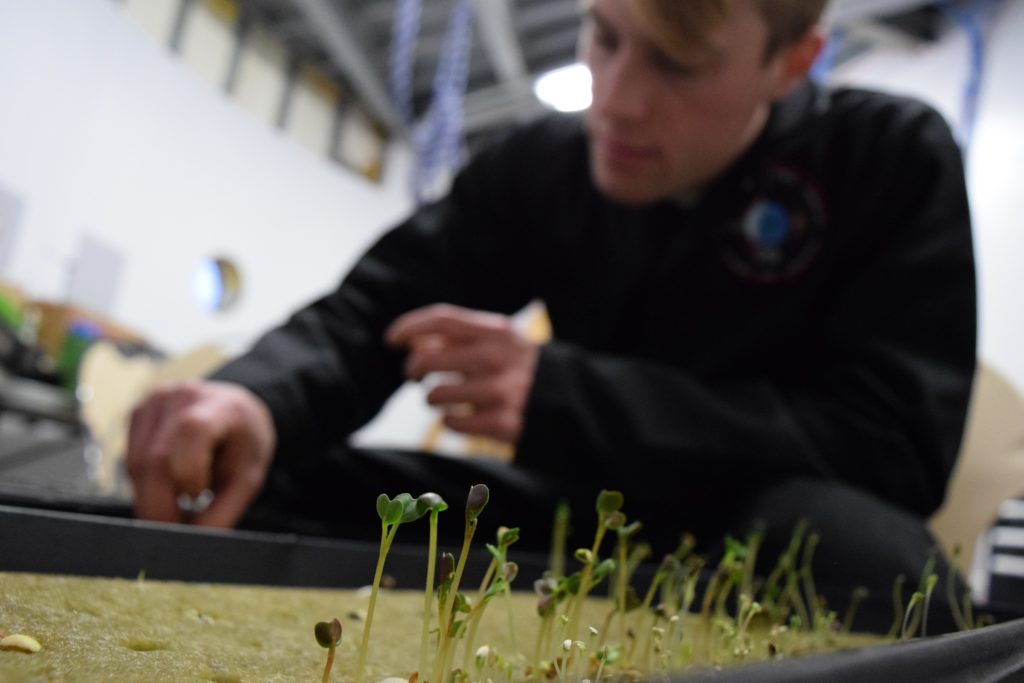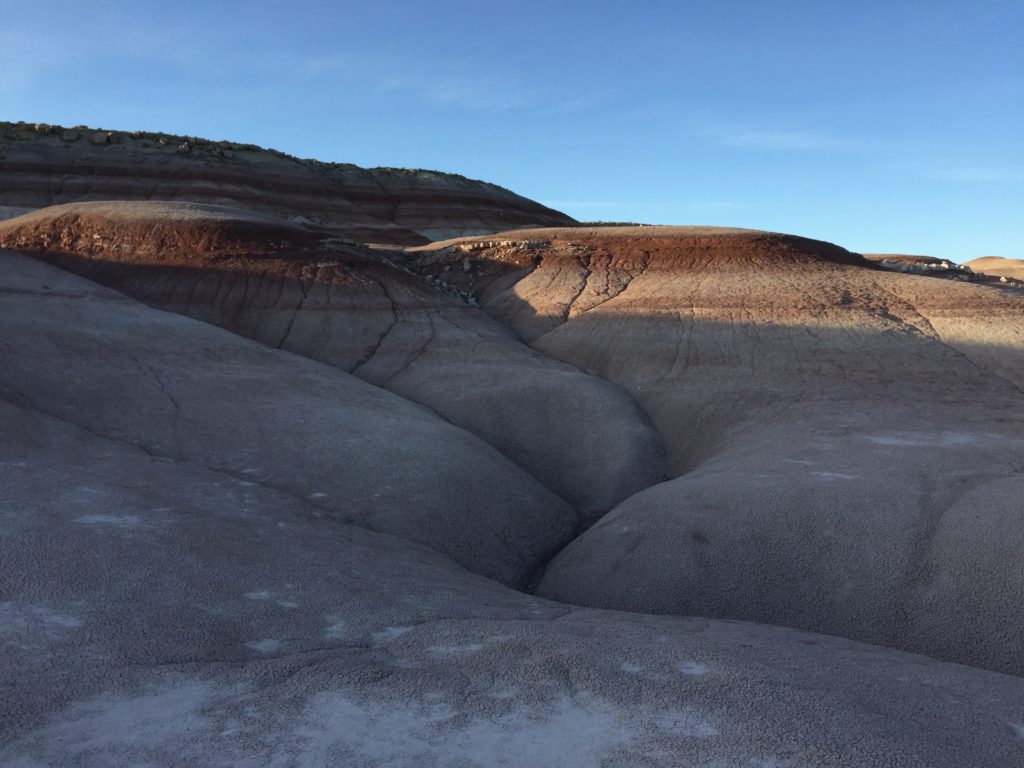one of the time-lapse cameras. I put that camera over the mound just
West of the HAB to look at some stream channels flowing down the side
of a few hills.
My other camera is still looking at the HAB and the surrounding
mounds. It does not look like we will receive any more rain for the
rest of our mission. This doesn’t concern me too much as I can also
use this data to visually analyze the shape of these stream patterns,
even in their dry state.
One interesting aspect of the geology of Mars in regard to the first
human mission is landing site selection. Strategically, selecting a
location for the HAB and the power generators will be critical. An
enclave that provides protection from sandstorms but still has plenty
of sunlight for solar panels could work. There are many other factors
to consider: access to ice/water, geologically interesting features
and some protection from cosmic and solar radiation. With the thin
atmosphere and extremely weak magnetic field, electronics and power
supplied will need to be shielded or located underground.
The poles present abundant ice deposits at the surface but the frigid
temperatures will require more fuel and energy to sustain human life.
The Second Law of Thermodynamics is a menace. Latitude is also a
factor. Many of the landers and rovers that have been to Mars are
located at the mid-latitudes. The pros and cons of every possible
landing site must be weighed.
Max/Min: Outdoor Temp – 12 F – 43 F
Outdoor Humidity – 35% – 67%
GreenHab Temp – 22 F – 94 F
GreenHAB Humidity – 10% – 35%
Barometer – 29.67 – 29.87 inHg
Wind – 1.1 mph, gust – 2.5 mph
Solar Rad. Max – 399.8 W/m^2
UV Index – 777 uW/cm^2
Dew Point – 2.5 F – 19.6 F
Recorded Precipitation today – 0.00 in
Final Sleep Study Report:
The crew’s sleep schedule is pretty much aligned at this point.
Geoffrey consistently wakes up first and starts doing work in the
kitchen. I usually wake up second and then the rest of the crew. I
think many people are sleeping in such a way that they are awake from
around 2-5 am to take advantage of the free internet. Overall,
everyone seems to be very productive. A couple of the crew members
take naps during the afternoon hours in order to stay rested. I think
that plenty of sleep is critical to work output. On Mars there could
be a plethora of other factors to consider with sleep. How does sleep
change with different levels of oxygen, carbon dioxide and nitrogen in
the atmosphere? Also, how does the reduced gravity affect sleep
patterns in the brain, if any? We’ll need to eventually find these
things out.
#keepMarsfrat
Submitted by Connor Lynch – Crew Geologist/Astrophysicist














